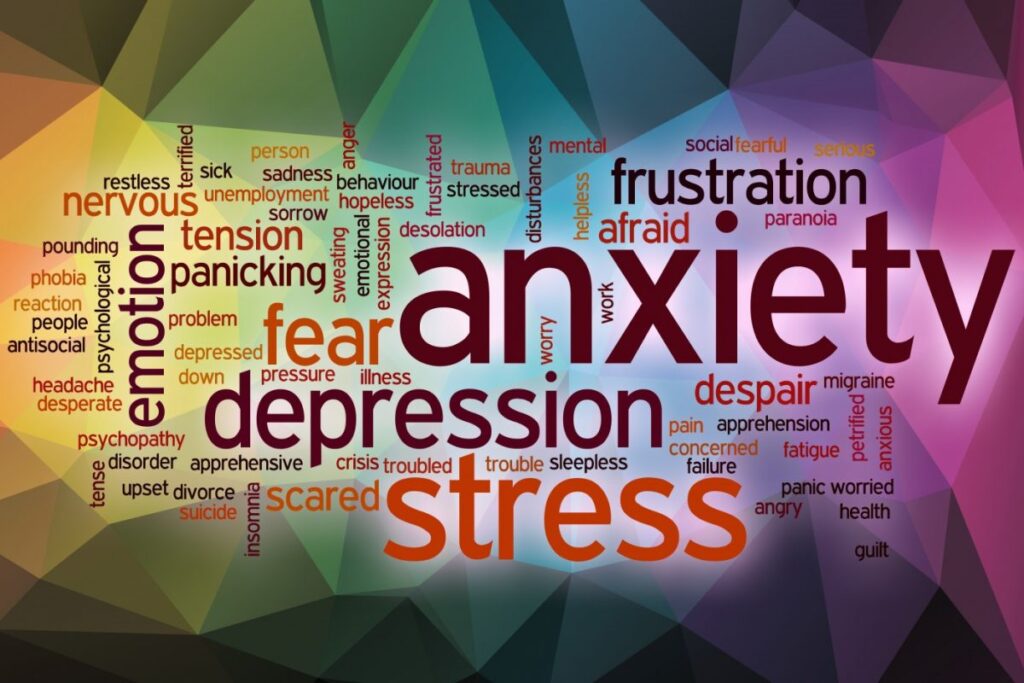WHAT IS ANXIETY?

Anxiety is referred to as the body’s response to stress or any stressful situations that cause discomfort and uneasiness. It is the fear of what is going to unfold next. Anxiety could be anything like a job interview, first day at school or even your board result.
Therefore anything that creates a feeling of tension and restlessness about something that is to happen creates anxiety. Most of the time people have this feeling when things are not in their control.
CAUSES
A DEEPER DIVE
The causes of it are considered to be complex in nature. Some certain stressors or factors result in it –
- ENVIRONMENTAL
- GENETIC
- BRAIN CHEMISTRY
- MEDICAL FACTORS
- WITHDRAWL FROM ILLICIT (ILLEGAL) SUBSTANCE
– ENVIRONMENTAL
The environmental stressors could be a difficulty at work, relationship, or family issues.
– GENETIC
it can also arise from the fact that people in your family have an anxiety disorder so you are more prone to have it.
– BRAIN CHEMISTRY
This could also be related to the chemistry of the brain. Many Psychologists suggest that it could be due to the misalignment of hormones as well as the electrical signals.
– MEDICAL FACTORS
The symptoms of different diseases or even the effects of a medication can be a cause of anxiety. Sometimes even the stress of an intensive surgery as well as prolonged recovery can initiate the release of the stress hormones.
-WITHDRAWL FROM ILLICIT (ILLEGAL) SUBSTANCE
Another reason that could give rise to anxiety is the withdrawal of some illegal substance. This can even mystify the impact of all the other possible causes.
SYMPTOMS
The experience of this disorder varies from person to person. It can range from a feeling of butterflies to aches to even racing heart. There are situations wherein the body feels out of control and you may loose the connection between your mind and body.
Apart from this, it can also include nightmares, panic attacks, deep and painful thoughts or memories over which you don’t have any control.
Some of the most generic symptoms of anxiety are-
- Rapid breathing
- Increased heart rate
- Continuing and Prolonged feeling of restlessness
- Difficulty in sleeping
- Trouble in focusing
- Disturbed concentration
- Headache
- Muscle tension
- Panic
- Stomachache
- Irrational anger
- Irritability
- Nervousness
TYPES OF ANXIETY
Anxiety can give birth to many types of disorders-
1. PANIC DISORDER
A person having panic disorder could experience recurring panic attacks at unexpected times. It is so sudden that the person might live in the fear of the next attack!
2. PHOBIA
This is related to an excessive and intensified fear of a specific object, activity, or situation. For example fear of water or lifts
3. OBC OR OBSESSIVE-COMPULSIVE DISORDER
This involves the recurring irrational thoughts that result in performing some specific behaviours over and over again. For example, washing your hands
4. SOCIAL ANXIETY DISORDER
It is the extreme fear of being judged by anyone else in social situations.
5. ILLNESS ANXIETY DISORDER
This disorder is related to anxiety about your health. It was formerly called HYPOCHONDRIA.
6. PTSD OR POST TRAUMATIC STRESS DISORDER
This is the anxiety related to the following of some traumatic event. For example, losing your loved ones
7. SEPARATION ANXIETY DISORDER
This is associated with the fear of being away from your own or loved ones.
ANXIETY AND DEPRESSION
There is a close relationship between the two. It is said that if you have an anxiety disorder, you might be depressed as well. Although both of them can occur separately it’s quite common for them to happen together.
The symptoms of both can be managed with more or less the same type of treatments which are –
- Psychotherapy (counselling)
- Medications
- Lifestyle changes
TREATMENTS
Once discovered, there are a variety of treatment options that can be explored. For example, For some people, medical treatment isn’t necessary and they just need to focus on changing their lifestyle.
Whereas, in moderate to severe cases the treatment can help you to overcome its symptoms and lead a more organised day to day life.
The treatment for anxiety falls into two categories-
1.PSYCHOTHERAPY
2.MEDICATION
Regular counselling with a therapist or a psychologist can play a major role in helping to learn the tools needed to use and strategies required to cope with anxiety as and when it occurs.
The most generic medications suggested to treat anxiety are antidepressants and sedatives. These help to balance the brain’s chemistry, ward off most of the symptoms as well as prevent episodes of anxiety.
Concluding it, I would like to say it is important to understand and identify what is going on with your body. What is even more important is to figure out what can be done to fix it. The anxiety disorders can be treated with psychotherapy, medication, or even the combination of two working simultaneously.
It might not go away easily or can stick with you for really long but learning ways to manage it in order to lead a happy and healthy life should be the approach to deal with it.
Most importantly, understanding that you are not alone!





